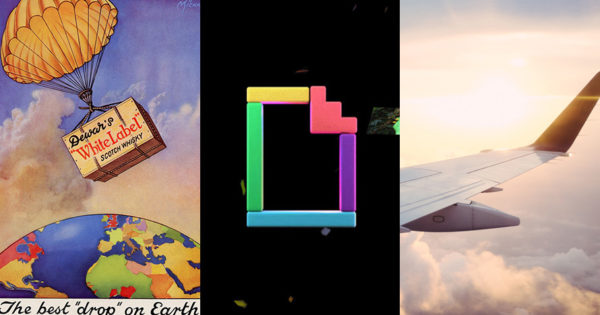
Brands were feeling nostalgic this week, pulling out Prohibition-era imagery, reimagining campaigns from the ’90s and trying to give soda pop a comeback. Adweek, too, was tapping into the past, meticulously documenting the history of racist brand mascots, while also keeping tabs on the shocking data points that are cropping up in the time of Covid-19.
These are the seven stats from the world of brands, marketing and advertising that caught our eye.
Board games and coloring books for the bored at home
Cuba’s first multinational corporation, rum manufacturer Bacardi Corp., has been a survivor for over 158 years, pulling through the Cuban War of Independence, Prohibition, the communist revolution and the 1980s, when rum wasn’t hip to drink. Now, Bacardi is hoping to wait out the coronavirus by giving its fans a blast from the past: coloring pages created from the brand’s swanky vintage advertisements. Why? Because Americans are desperate for quarantainment. According to data from the NPD Group, U.S. sales for toys grew by $256 million to reach $3.6 billion in Q1 and in early April, toy brand Ravensburger reported that its puzzle sales had increased by 370%.
Clink, clink, another drink (delivered straight to your door)
While bars, distilleries, restaurants and tasting rooms remain closed and deserted, the booze industry has not been abandoned thanks to off-premises alcohol sales. Retail, DTC and delivery services like Saucey and Drizly are faring well during the coronavirus. From February to March, Saucey’s sales soared 400% and on Cinco de Mayo, Drizly’s sales were about 10 times higher than they were on the “holiday” in 2019.
Giphy and Instagram update their relationship status
Social media pioneer Facebook has acquired Giphy to integrate with Instagram, thereby rendering finding the perfect reaction GIF to elevate your Stories and DMs game a breeze. According to Axios, the deal was worth $400 million. 50% of Giphy’s traffic already came from Facebook’s applications, Facebook vp of product Vishal Shah noted in a Newsroom announcement. However, Giphy also has a preexisting relationship with Snapchat and Twitter. Both the photo messaging and the microblogging platform declined to comment on whether Giphy integrations would be affected by Facebook’s purchase.
Hard times for publishers and platforms
The media business, which was ailing prior to the pandemic, has been struggling to survive amid Covid-19 due to declining advertising spend and revenue. This week, a disheartening wave of furloughs, layoffs and salary reductions struck a number of print and digital publishers. Condé Nast furloughed or laid off nearly 200 staffers, The Economist laid off 90 staffers and suspended the print edition of 1843, Vice Media laid off 155 staffers, Quartz Media laid off 80 employees, most of which were in its advertising department.
Pent-up wanderlust is a ray of hope for the travel industry
Efforts to mitigate the spread of the coronavirus and concerns about the outbreak have led people to travel only in their imaginations, adding dream destinations to their Pinterest boards or loading up on adventure-filled documentaries on Disney+ and the Discovery channel. This pent-up wanderlust finally brings some hopeful news for the travel and hospitality industry, which has been pummeled by a sharp drop in demand. Per marketing agency Mower, 1 in 4 Americans wants to travel immediately after restrictions are first lifted, and within two months, more than half would fly domestically and 42% would fly internationally.
Shopping sprees? In this economy?
Since mid-March, brick-and-mortar retail and food services have been struggling amid restrictive coronavirus measures while online sales have been growing. Consumer spending in the retail sector tumbled 16.4% this April from the previous month, according to advanced estimates released by the U.S. Census Bureau, a figure that is far worse than what economists had predicted for sales in the first month of Q2. Which retailers took the biggest hit? Clothing and accessories sales plummeted 78.8%. For a sector already in peril, things are looking pretty bleak: per a series of recent polls, wary Americans will likely sit out from shopping sprees even when stay-at-home orders are lifted.
The Marie Kondo effect has officially fizzled out
Coronavirus has squashed the trend toward minimalism and de-cluttering, first getting consumers to panic buy, and, now, to hoard. According to data from the National Retail Federation, 33% of shoppers have been worried about not being able to get fresh produce and cleaning products, leading half of consumers to indicate they were still stocking up on food and household supplies to last a few weeks. What products are people stuffing into their pantries and closets? According to K.K. Davey, president of strategic analytics at market research company IRI Worldwide, more frozen food, alcohol, laundry detergent and household appliances.
https://www.adweek.com/retail/7-of-this-weeks-most-telling-marketing-stats-from-puzzles-to-pent-up-wanderlust/

